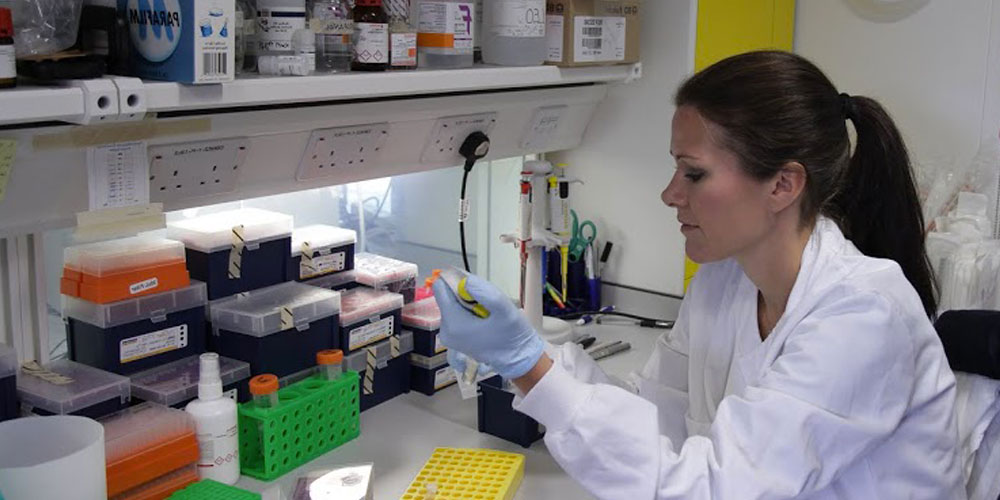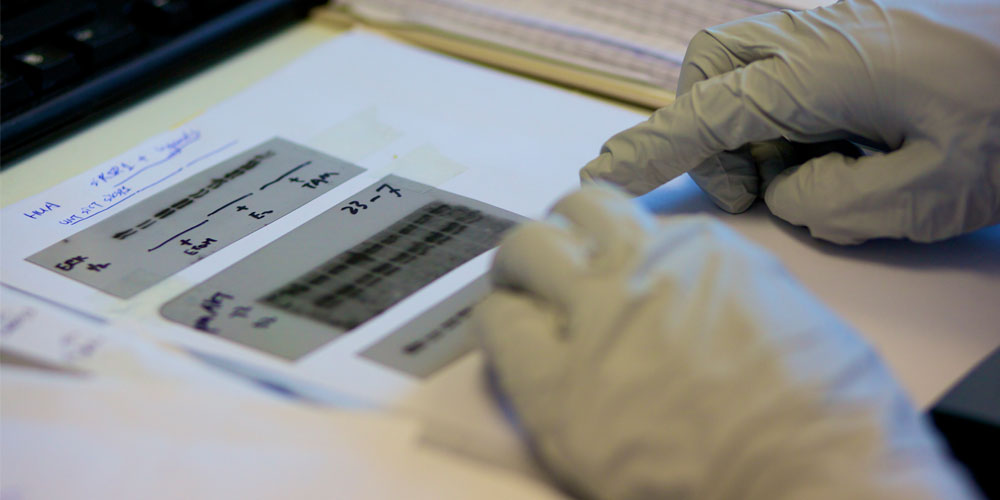Our work
Some 2018 achievements in the labs
Action Against Cancer funds research carried out by various teams of scientists at Imperial College London and the University of Sussex. Recent highlights of their work include:
Cancer stem cells
The elimination of cancer stem cells is considered a new hope for the eradication of malignant tumours and the prevention of tumour recurrence. By using cutting edge technologies, this team have discovered a specific molecule that can limit the growth of breast cancer stem cells. The scientists are now analysing large data sets to see whether this molecule can be used to diagnose breast cancer more quickly. They are testing the molecule to see if it can be manipulated to enable drug treatments to work more effectively.
Developing a new drug - A totally new approach to therapy
Since discovering the cancer causing gene LMTK3 in 2011, this team have been working on a drug to combat it. This will work in conjunction with existing treatments, overcoming patient’s resistance that often develops over time. A lot of progress has been made in recent months in this exciting area of research. The scientists have identified drug components that appear to target LMTK3, and they are now testing various properties of these e.g. their ability to enter and act within cells. Based on these results, they will be able to decide which additional chemicals are required to improve these properties, to develop this important new drug.
Metastasis
Using the latest gene editing techniques, this team demonstrated that two specific short molecules are linked to the initiation and metastasis (spread) of pancreatic cancer. The results of the groundbreaking research have now been published in Nature Communications (a sample can be viewed here).
The team is now working to translate these findings into therapies for pancreatic cancer patients, by investigating the most efficient way of delivering inhibitors of these molecules to cancer cells, and whether they could work in conjunction with existing chemotherapy drugs.
Genetic switches
The team investigating pregnancy associated breast cancer think they may have identified the signalling molecule linked to this difficult disease. In order to carry out the various experiments required to validate this theory, patient samples have been collected from Charing Cross Hospital and from tissue banks in the UK and USA. The aim is to identify a window of opportunity during pregnancy and the period afterwards for breast cancer preventative strategies.
Understanding the cancer brain
Working on the making cancer cells normal again project the team have successfully managed to differentiate some aggressive brain cancer cells. This is an important step in developing a new treatment option for patients with advanced cancers. It was confirmed by analysing the shape of specific cells and the levels of certain genes and proteins.
Click here to read a summary of this work by the PhD student working on the project.
Some previous achievements in the labs:
- From 2024
- From 2023
- From 2022
- From 2021
- From 2020
- From 2019
- From 2018
- From 2017 (part two)
- From 2017 (part one)
- From 2016


